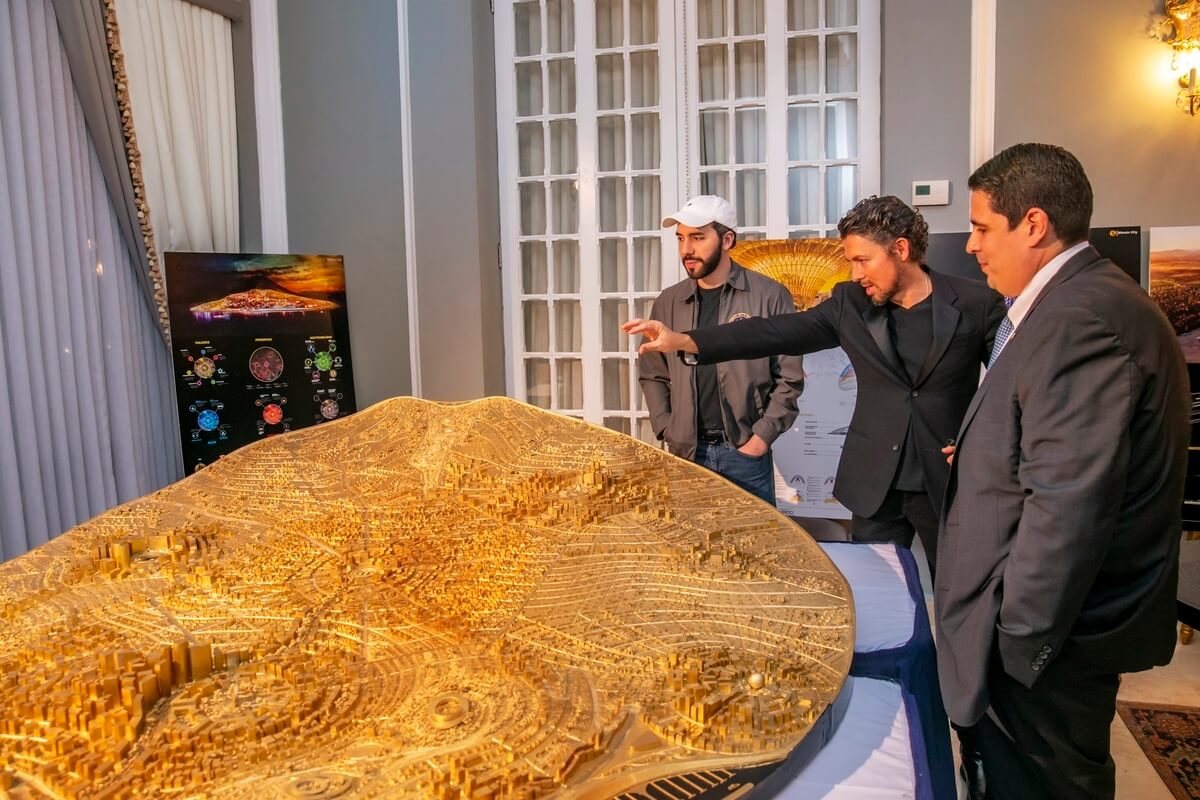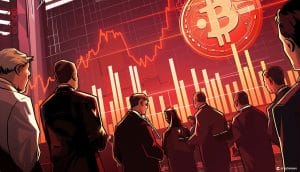Bukele Showcases Bitcoin City Plans and ‘Buys the BTC Dip’ Amid Stark Warning

After weeks of silence on all things bitcoin (BTC)-related, El Salvador’s outspoken President Nayib Bukele has taken to Twitter to announce that his government has bought USD 15.4m worth of BTC – and to showcase plans for Bitcoin City. However, voices of opposition are continuing to issue warnings, with a former chief of the central bank hitting out at Bukele’s plans to fund the city’s construction with a bitcoin bond issuance.
As previously reported, many observers have claimed that the bond issuance will not take place, after the government missed its own deadline of mid-March. The government has refuted such claims. For much of the year, however, Bukele – usually very active and vocal about all things BTC-related – has been silent on bitcoin-related matters, instead tweeting mostly about his government’s war with the pandilla street gangs.
That has all changed in recent hours, when Bukele announced that his government had “bought the dip” – purchasing BTC 500 for an “average price of USD 30,744.” Bitcoin prices have continued to stall near the USD 30,000 mark, with only mild recoveries since the President made his move. At 7:14 UTC on Tuesday, it’s trading at USD 32,094, down 5% in a day and 16.5% in a week.
The purchase means that El Salvador has bitcoin reserves of over BTC 2,300 (USD 73.8m), although no official government records detailing the purchases have been made – and Bukele’s tweets on the matter are the only communication from the government on the subject.
Bukele also posted a number of images of a gold-colored 3-D model of the city, which is being constructed at the foot of a volcano currently being used to mine BTC using geothermal energy.
#Bitcoin City is coming along beautifully ❤️ pic.twitter.com/A6ay8aAREW
— Nayib Bukele (@nayibbukele) May 9, 2022
He returned to post two rendered images showing what the completed Bitcoin City would look like at night, as well as what appears to be a viewing platform or walkway near the volcano’s summit.
#Bitcoin City at night. pic.twitter.com/n6RXn9BkU0
— Nayib Bukele (@nayibbukele) May 10, 2022
Francis Pouliot, the CEO of Bull Bitcoin, took a dim view of developments, opining that it was “absolutely insane that some people actually believe” the project would go ahead.
Meanwhile, Carlos Acevedo, the former governor of the central bank, the Central Reserve Bank of El Salvador, has told a Salvadoran TV channel that the government’s “hope” of issuing the bonds is “already extinguished.”
Per ElSalvador.com, Acevedo pointed to a USD 800m bill the government is facing in January next year when a (conventional) bond expires. Acevedo stated that an International Monetary Fund (IMF) aid package was now off the table with “the door closed” to such support.
And the thorny issue of balancing the books could, the former central bank chief stated, leave the government with no choice other than to “reengineer” public finances – and nationalize Salvadoran pension funds.
This is “something that economists and lawyers have warned about” for some time, particularly as institutions such as Moody’s adjusted their credit scores downwards for El Salvador.
Last week, Moody’s dropped the country’s credit rating from Caa1 to Caa3, and also warned that there was a possibility that the state would use public savings “to obtain liquidity,” and decried “the lack of information” regarding Bukele’s plans.
Acevedo also hit out at Bukele and his government’s “lack of transparency in public spending,” claiming that this had alienated international bodies. He also claimed that BTC had lost up to 50% of its value since reaching price highs, claiming that this would further damage the Salvadoran economy.
____
Learn more:
– El Salvador Finance Minister: We’re Waiting for Bitcoin Price Rise Before Issuing BTC Bonds
– Financial Markets Not Ready for Bitcoin-Backed Bonds – MicroStrategy CEO
– IMF Deal ‘Dead’ and So Is Bitcoin Bond Issuance, Claim Bukele Critics
– Bukele Returns to Miami Bitcoin Conference as Gangland Crackdown Takes Gruesome Turn
– 2 in 10 People in El Salvador Still Using Government’s Chivo Bitcoin App – Survey
– Bitcoin City: The Bizarre History of Libertarian Attempts to Create Independent Cities




